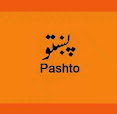Oh, the beautiful city of Kabul wears a rugged mountain skirt,
And the rose is jealous of its lash-like thorns.
The dust of Kabul's blowing soil smarts lightly in my eyes,
But I love her, for knowledge and love both come from her dust.
I sing bright praises to her colourful tulips,
The beauty of her trees makes me blush.
How sparkling the water flows from Pul-i-Mastaan!
May Allah protect such beauty from the evil eye of man!
Khizr chose Kabul to Paradise,
For her mountains brought him near to heaven's delights.
The fort's dragon-sprawling walls guard the city well,
Each brick is more precious than the treasure of Shayagan.
Every street in Kabul fascinates the eye.
In the bazaars, Egypt's caravans pass by.
No one can count the beauteous moons on her rooftops,
And hundreds of lovely suns hide behind her walls.
Her morning's laugh is as gay as flowers,
Her dark nights shine like beautiful hair.
Her tuneful nightingales sing with flame in their notes,
Fiery songs like burning leaves, fall from their throats.
I sing to the gardens, Jahanara and Sharbara.
Even the tuba of Paradise is jealous of their greenery.














